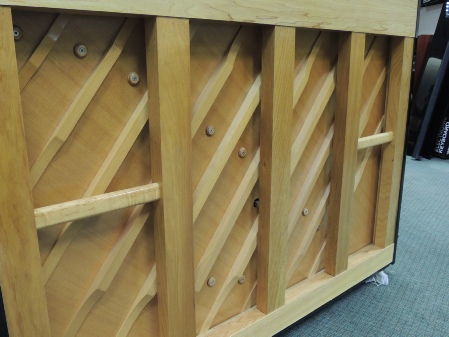
Alex Fender © Fender Piano Services 2013 - 2019

Welcome to
Tel: 0800 233 5440 - Mobile: 07725 120137
Free-phone number!
Now that you have your lovely piano home you need to look after it!
Here are the answers to most questions you may have and some practical advice.
The first thing to think about is where in the room the piano will go. If it’s an upright, try and site against an inside wall, make sure that it’s at least 2 feet away from any radiators and hot pipes. Radiators, hot pipes, hot air ducts can spell disaster very quickly.
I’m often asked about dust, especially in grand pianos. Trouble is that pianos tend to make their own dust as there is so much felt inside. Dust is not really a huge problem but every few years it should be blown out using a hand blower or similar device. Your tuner can do this easily.
Keep the keys clean! Use only a slightly dampened cloth. Rub the key front to back, not side to side as this can cause wear on the key bushings. Never use spirits as this can soak into the wood and cause the keys to warp. Clean the keys regularly!
Pianos tend to make good shelves and are usually stacked with books and the like. All well and good but never ever put a plant or flowers on your piano. No matter how careful you are eventually water will get spilled. Water and pianos do not mix and could prove very expensive indeed.
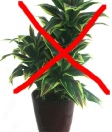
I’m often asked about putting a jar of water in the bottom of the piano. There is a common misconception that it will do the piano good! Not so! The humidity in this country is high enough without adding to it. So don’t put any water in your piano…please!
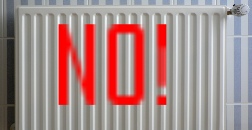
A part of the piano that is often forgotten is the back! It gathers all sorts of stuff from dust to books falling down there not to mention all the other bits and bobs that get put on top of the piano and eventually find themselves falling down the back. It’s a good idea to pull the piano away from the wall and give it a clean now and again - but preferably just before it’s tuned!
Here is a nice clean back!
I often get called out to look for strange buzzy noises. 9 times out of 10 it’s either because something has fallen down the back or it’s something else in the room vibrating in sympathy with certain notes. If you experience odd sounds, the first thing to do is clear everything off the piano, check down the back and clear anything that's down there and then see if it’s still there. Does it actually sound like it’s coming from the piano? If so then it’s time to call me!
Once I was called to a piano where it appeared that some notes were still sounding quietly after playing had stopped. All I had to do was remove a heavy book that had been placed on the keyboard at the bottom bass end! The book had pressed the keys down so lifted the dampers off the strings at the bottom!
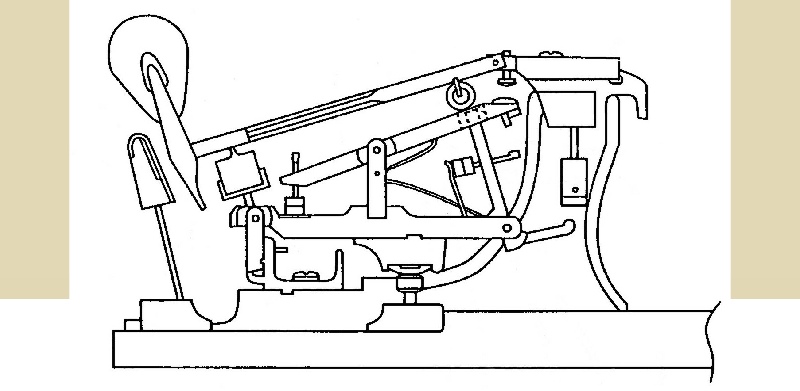
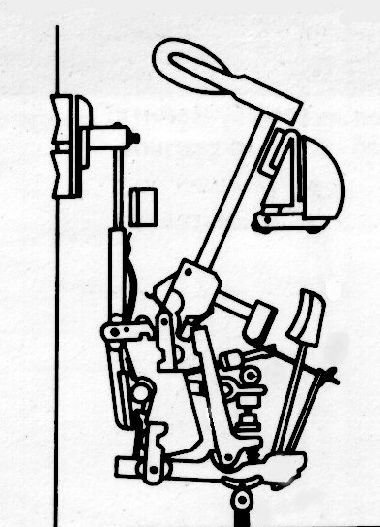
Above is a diagram of a grand piano action and to the left an upright action. These represent just one note, remember you have 88 notes on a modern piano so that's a lot of parts - more in a piano action than there are in a car!
Normally every two to three years your piano action should be regulated to adjust for wear and tear. There is a substantial amount of felt used in piano actions and this wears and beds down over time. Adjustment is needed to take up any slack that has developed.
Another problem can be moths, although most new pianos are pre-treated against this. It’s worthwhile to get a suitable mothball type insecticide and putting it in the piano. If you see a moth close to the piano don’t be afraid to lift the lid and give it a good squirt of an aerosol insect killer just in case.
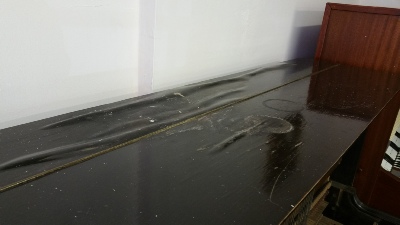
This is what happens when a plant or flowers are put on top of a piano. Water has got on the piano and ruined the veneer on top. In this case, the entire top would need stripped and re-veneered. It would then have to be polished to match. Rather expensive!
There will be a time when you will need to move your piano either a few inches or to another room or even another house!
